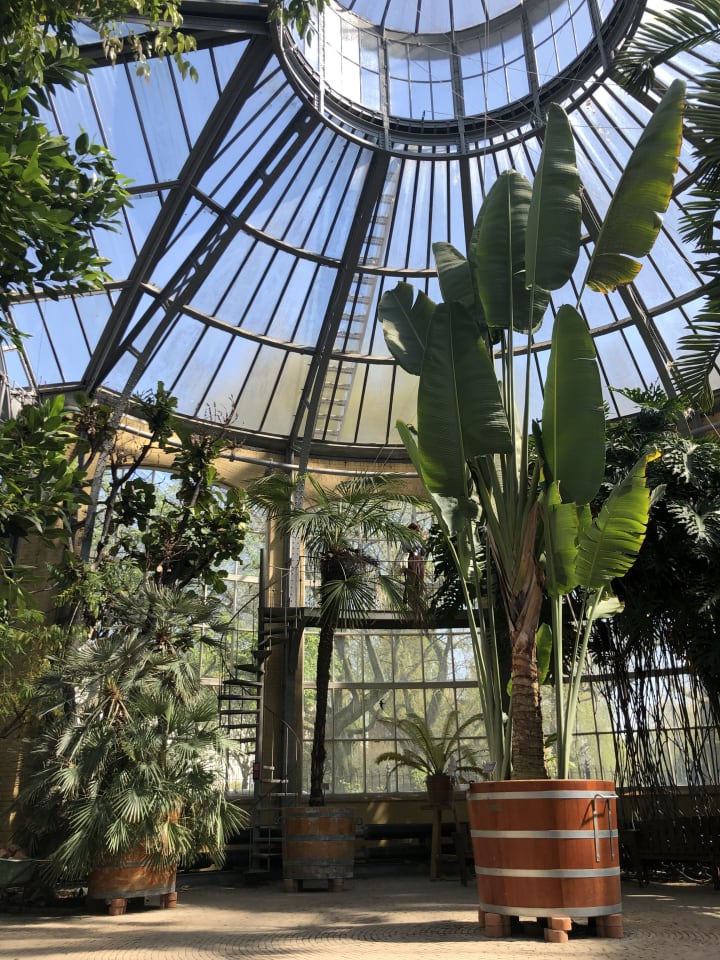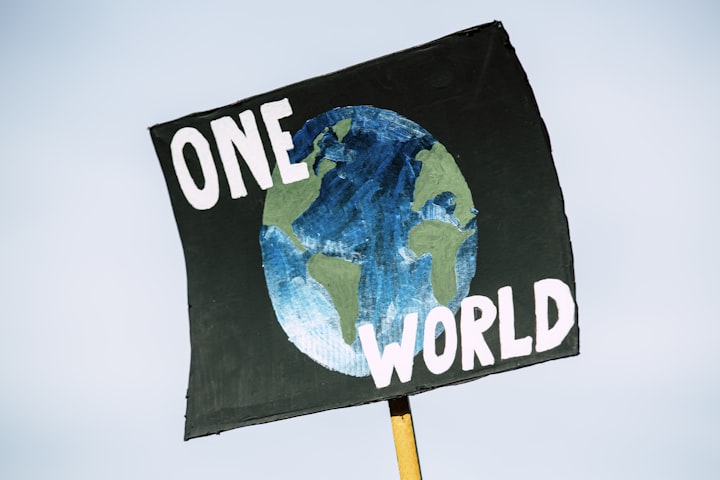Touch the Earth: How Taking Care of Plants Boosts Human Happiness
Plants keep us grounded; rooted to the belief that we can continue to grow despite the challenges and obstacles in our way.

Plants make people happy. It’s a common phrase that has taken hold in the plant world and for most it is an agreeable and indisputable fact. Fiskars takes this message to heart, which is why they have made it their mission to increase human happiness in and around the home. They know that much of this happiness revolves around plants, and they challenged me to examine what makes us so infatuated with these green beings and how they bring happiness and healing into our lives. Plants have rooted themselves in more than just our backyard gardens and living room jungles, and I have witnessed firsthand how much happiness plants have brought to our lives. But before we dive into it, here’s a short story that perfectly encapsulates plants’ positive impact on one of my clients.

One of my first and favorite clients was a fashion designer and influencer in New York City. She had hundreds of thousands of followers, ran a successful fashion brand and reached out after hearing of my services from a friend. She asked if I could take her plant shopping. and we set a date.
She arrived at the plant shop dressed far better than my simple jeans and sweater. Black leather jacket with the pants to match and a pair of black wayfarer sunglasses adorned on her head. She even brought her personal photographer to capture the experience. At first I thought she wasn’t going to respond well to the plants and my nerdy anecdotes, but she was engrossed in the green. She walked through the shop in awe, touching each leaf as she went by and bending down to inspect them more closely. She absorbed my knowledge like hungry roots, and her fascination was blooming for the first time right in front of me.
We made our purchases and loaded her plants into a taxi. Most were packed away in the trunk but she kept a smaller plant on her lap in the backseat. She quickly gave the plant a name and was talking to it lovingly as if it were a young child. And then she did something that will forever be chiseled in my memory.
She sniffed the soil. Not, a casual sniff either. She literally put her face into the plant’s soil and breathed it all in. She lifted her head up, looked me in the eye and said:
“I can’t remember the last time I’ve touched the earth”.
I was dumbfounded. Stifling a smile, I was trying to play it cool but I couldn't help but think how concurrently validating and depressing this moment was. Here you had this beautiful woman, living a luxurious lifestyle and traveling to places like Miami, London, Paris and Los Angeles for exclusive events, seemingly fulfilled every way you could imagine, sticking her face in the dirt of a potted plant because she’s been deprived of nature for so long. The plants filled a void and made her happy.
This experience was a reminder that we humans are still animals. No matter how many followers we have on Instagram, how much money we make, how many things we have, we need the right environmental conditions to thrive. For our own health and happiness, we must learn to live in concert with nature and respect the laws of biophilia.

Biophilia was coined by entomologist Edward O. Wilson but it stems from the greek words bio (life) and philia (love of). Most people commonly interpret it to mean “love of life” but if you dig deeper into the etymology, you will find that philia is more complex than just loving something. In fact, the Greeks had multiple words for love (agape, philia, storge, eros, philautia) each with their own specific meaning. Philia represents “brotherly love”, and Aristotle’s works portray philia as a friendship and loyalty to one’s family and community. So when you look back at the translation of biophilia, it is not a romantic, passionate love of life, but a friendship and relationship with the natural world. This is an important distinction because it puts nature and plants on the same plane as humans rather than making them an object of our affection that should be controlled or mastered. I believe Wilson was aware of this subtlety when he came up with the term, and he hypothesized that not only is this love of life an innate and essential characteristic of the human experience, but we as a species are programmed to seek out interactions with nature.
This makes even more sense when you realize that humans have spent 99.99% of our evolutionary history in natural environments, yet only in the last few hundred years did we choose to isolate ourselves in concrete cities devoid of nature. In 1950 only 30% of humans lived in cities, but that number has risen to 55% in the present day and is expected to reach 68% by 2030.

Was this a wise decision? Was our species ready for this transition? Only time will tell, but even before the pandemic, the average person spent 87% of their time indoors, (93% if you count the time spent in vehicles). Our increasingly tech-focused, four-walled lifestyle has chipped away at our connection with nature so much, that sometimes we forget that humans are still animals. Most of us purposely choose to ignore it so that we can justify our desire to manipulate and control nature. It is the ultimate form of cognitive dissonance, and we are already paying the price and feeling the repercussions of a life without plants. This change of scenery (or lack thereof) has the potential to negatively impact humans physically, cognitively and emotionally, but instead of focusing on the negative, let’s acknowledge the powerful impact plants can have. Here are some examples:
In Japan, “forest bathing” is a common practice designed to let nature into the body through all five senses (a process known as shinrin-yoku) and the positive effects on reducing stress and boosting immunity were so beneficial, that the Japanese government spent $4M in forest-bathing research between 2004 and 2012. Plants improved focus, creativity, and feelings of wonder, and it’s no surprise that some of Japan’s most beautiful landscapes were designed for poets and artists alike. This reverence of and relationship with nature is historically reflected in Japanese landscape design, which tends to blur the line between the natural world and the built environment. The Japanese philosophy was not about exerting control over the elements, but rather working with them for the benefit of humans, yet our modern city environments are starved of nature and provide few experiences for humans to benefit from its healing effects.

The irony grows even more when you realize that the people who live the longest and happiest lives on the planet (regions known as blue zones where residents live to 100 at 10 times greater rates than in the United States) are not those living in highly-advanced cities with unlimited resources at their disposal to optimize their health. In fact it’s the polar opposite. Simplicity reigns supreme in blue zones, and the humans there are thought to live so long because they have few stressors, a strong sense of purpose (also known as ikigai in Japan) and a plant-based diet. When researchers interviewed centenarians from blue zones like Okinawa, Japan, Sardinia, Italy and Nicoya, Costa Rica, they found that tending to a garden and taking daily walks in nature were ubiquitous practices - an activity that has been measured to boost one’s immune system. Less is truly more when you live a life focused on nature and plants, and although few of you will read this, pack your things, sell your apartment and catch the next flight to Okinawa, there are ways to implement blue zone wisdom and add a splash of green to your current lifestyle.
If the pandemic taught me anything, it has reinforced the idea that humans NEED plants. Our new home offices became havens for houseplants, gardening, cooking and creating, and we sought refuge in our green kingdom after hours of looking at screens. Going for a walk outside became the highlight of the day for most people, and houseplant and seed sales have skyrocketed across the world as people brought nature into their lives for the first time amidst the chaos.

Plants keep us grounded; rooted to the belief that we can continue to grow despite the challenges and obstacles in our way. Plants demand no credit, they have no ego, and like any precious resource, we must respectfully integrate them into our lives if we are to experience the joy that they can bring, which involves taking proper care of them and their surroundings. With gardening tools like those from Fiskars, we can begin to thank our plants and return the benefits they provide to each of us that bring them into our home. I’ve seen plants boost happiness even before the pandemic, and watched clients turn to plants after losing a family member, going through a miscarraige or coping with a breakup. Plants have been by our side since the beginning, and they are silent superheroes working behind the scenes 24/7 to make our lives better and happier.
About the Creator
Farmer Nick
Nick Cutsumpas
@farmernick on Instagram
Plant Coach + Urban Farmer 🌱 LA | NYC📍
Plants = regenerative stepping stones 🌍








Comments
There are no comments for this story
Be the first to respond and start the conversation.